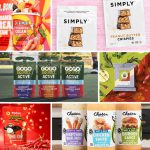With Rise in Desire for Healthy Foods, Comes Rise in Recalls
Consumers’ increased demand for for organic, healthy and natural foods is undeniable and food brands large and small are listening. Just recently Kraft announced it will be removing all artificial preservatives and synthetic colors from its Mac & Cheese and General Mills pledged to remove all artificial flavors and colors from any remaining cereals that still contain them.
Healthier, natural food can only be a good thing, right? Yet as Stericycle ExpertSOLUTIONS, a global business-to-business services company that offers services related to product recalls, found these consumer preferences may be driving increased recalls in certain sectors.
In their Q2 2015 Stericycle Recall Index, the company found that manufacturers feel increased pressure to offer more organic, healthy and natural products. Both revised versions of existing products and new products and line extensions. Yet, with more options comes more recalls. According to Stericycle, since 2012 more than 64 percent of recalls have been related to (what they classify as) healthy foods. While Q2 saw 178 FDA food recalls (up 47% from Q1 2015) 65% of these recalls were related to healthy foods.

There are several issues that are causing these trends, according to Stericycle.. First, they note an increase in a desire for raw foods — including produce options. Yet this category often sees recall issues related to bacterial contamination such as salmonella and listeria. In fact, the top category behind FDA food recalls was vegetables, with 61 percent of the quarter’s recall issues.
Also receiving increased focus from consumers are allergens. While a previous recall for undeclared allergens may have not previously bothered consumers, now a recall for undeclared allergens such as soy, wheat or dairy is a cause for more alarm. In Q2, Stericycle found, USDA reports showed a surge in recall volume. Of the 10.7 million pounds of products recalled in the quarter (ten times the volume of the previous quarter) undeclared allergens accounted for nearly 90 percent of the cause.
While not directly called out for specific recall issues this quarter, Stericycle expressed concerns about recalls from local food producers. The USDA’s Economic Research Service found that In 2014 there were 8,268 farmers markets (up 180 percent since 2006) and the number of food hubs increased by 288 percent since 2006-07. Furthermore, in 2014 Mintel reported that 96 percent of survey respondents purchase local food or drink, and 53 percent do so at least once a week.
Given this growth pattern, rather than let these new retail channels take market share away from them, retails ranging from Target to Whole Foods Market have increased the number of local products in their stores.
However, while this provides consumers more choices, Stericycle expressed concern that this can greatly affect the recall process. Given that many of these local producers operate on a much smaller scale, they do not have as robust systems as large food producers to handle recall events. Furthermore, tracking products sold at farmers markets and notifying consumers is even more difficult as sales are mainly in cash.
While adding a new line extension or product designed to cater to health-conscious consumers can seem appealing, producers have to be aware of increased complications and familiarize themselves with possible recall causes. If not any increased value is quickly eroded due to consumers increased wariness and distrust.












